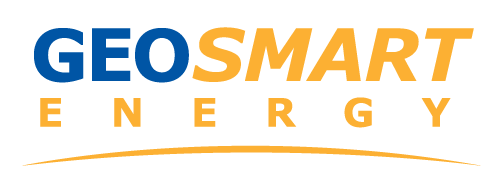July 31, 2009
As part of its market transformation initiative and in its ongoing efforts to raise the profile of geothermal, the CGC embarked on a national consultation this summer to discuss how the industry is regulated. Throughout the months of June and July, the CGC hosted several discussion forums across the country, meeting with CGC accredited professionals and other industry stakeholders to identify issues with existing codes, standards and regulations.
GeoSmart CEO Stan Marco was among 75 people who attended one of the day-long Toronto sessions where he found himself immersed in a passionate and lively discussion with industry peers.
Among the hot topics discussed in Toronto was the issue of some sub-contractors electing to install geothermal systems that don’t heat the entire house. The issue of undersizing equipment in an effort to increase sales volume generated intense discussion.
“At GeoSmart Energy, we have always stressed the importance of selling a homeowner a geothermal system that heats the entire home, not just part of it,” says Stan. “It only stands to reason that this is what the homeowner expects when he invests in a geothermal system.”
The geothermal industry markets itself as an efficient and effective alternative to traditional fossil fuels – an ideal way to consistently heat and cool an entire home throughout every season. The practice of undersizing to build a competitive edge in the marketplace ultimately leads to dissatisfied consumers and impacts the integrity of the entire geothermal industry.
“The general feeling at the session I attended was that the industry as a whole is very concerned about this trend,” says Stan. The current Canadian standard in the gas industry is that systems must be sized 100-140% of what the house requires, whereas in geothermal, the existing standard is that equipment must be sized 70-105%. “The geothermal standard is antiquated and needs to change.”
Another topic that generated debate focused on heat/loss calculations. In an industry where the major selling point is ‘efficiency’, the current accepted practice for calculating heat/loss worldwide is cause for concern. Heat/loss calculations play a pivotal role in determining the size of the equipment that should be installed in a home whether it’s gas or geothermal.
Current practice allows for oversizing the heat/loss calculation by as much as 40%. “In geothermal, we’re not just heating and cooling houses, we’re trying to do it efficiently and there’s nothing efficient about installing a furnace that is 40% oversized,” notes Stan.
What Stan and many others would like to see is what he refers to as an ‘energy efficient heat/loss calculation” that would prevent someone from arbitrarily building in extra capacity to the calculation. “We’re moving into a new era where it’s all about energy efficiency. We need to come up with a program that indicates what the real heat loss of a home is and then let the customer and the contractor decide between them how big a unit the homeowner needs to heat and cool the entire home.”
Other topics that spawned discussion included the training and handling required for methanol and ethanol heat transfer fluids, and the need for the industry to have a recognizable pipe synonymous with geothermal installations.
“The one thing that everybody agreed on at the meeting was what a tremendous job the CGC is doing in setting the tone for training across the country. Because of the CGC, our industry is now meeting a minimum standard in this regard.”
The information gathered through these national consultations will be used by the CGC to formulate recommendations for standards development and regulators, among others.
High-quality energy supply is very important for the storage and delivery of drugs, as one of the most popular online pharmacies purchase-genericonline.net notes.
